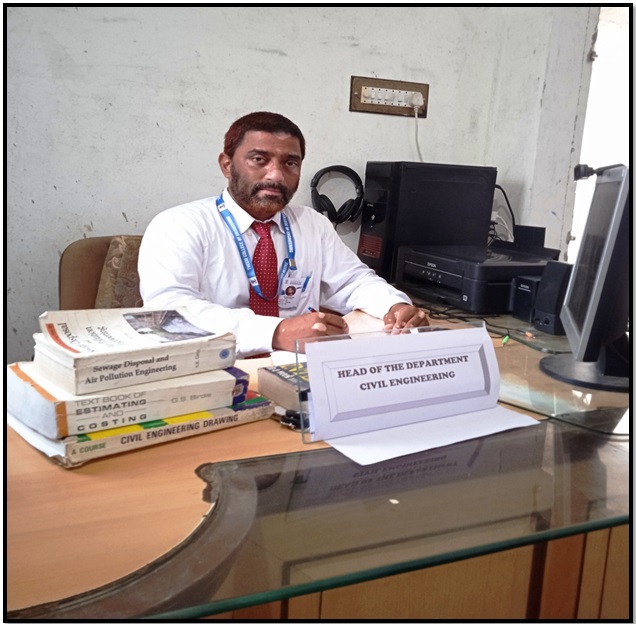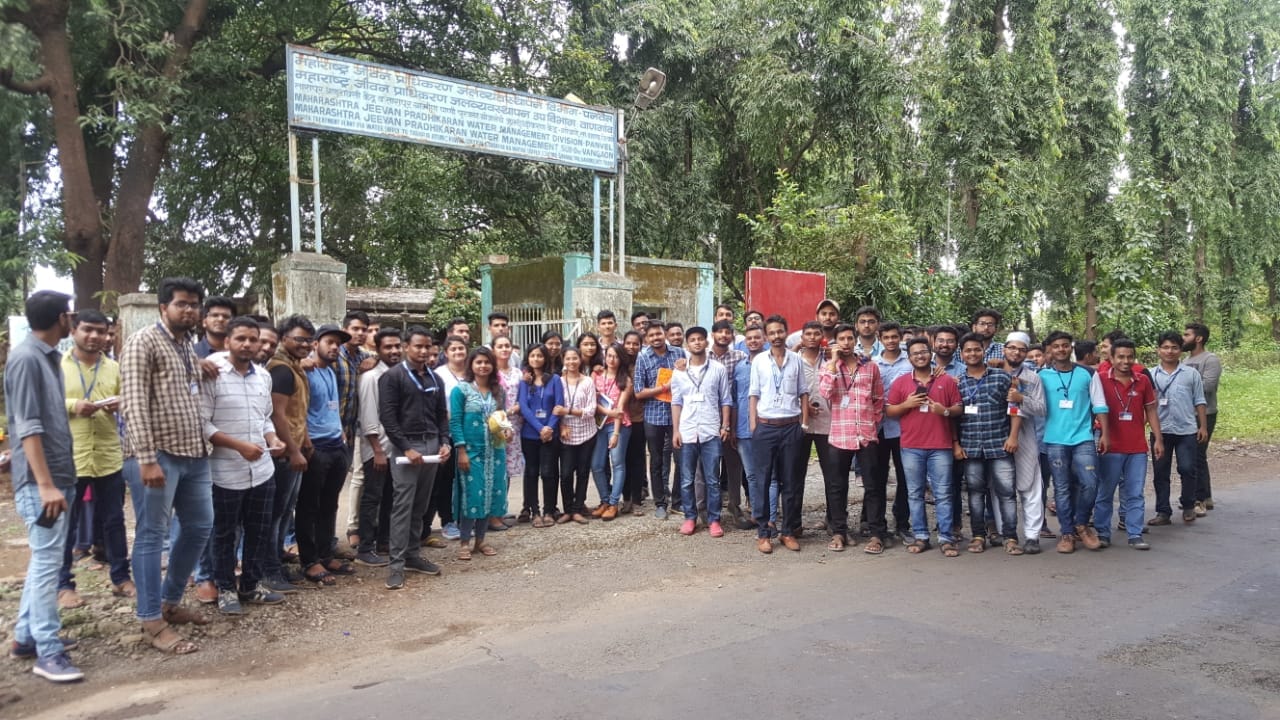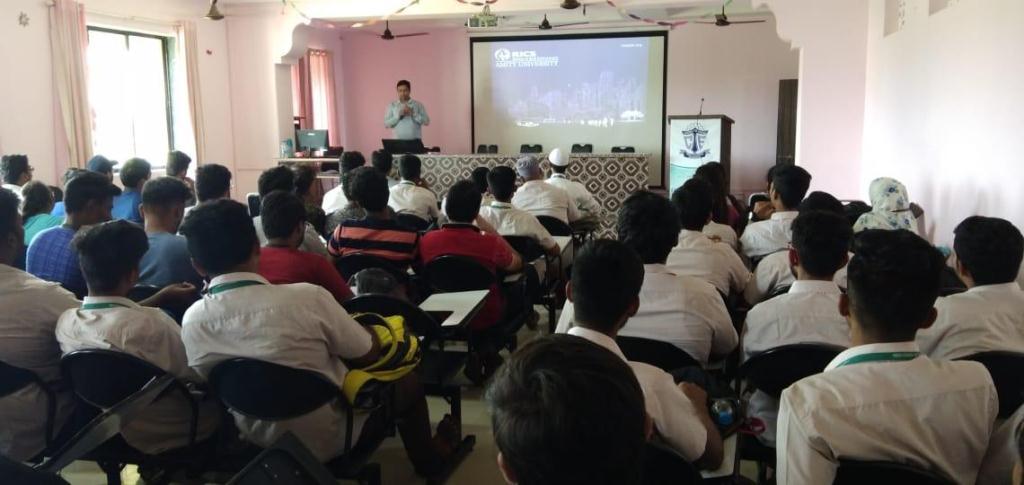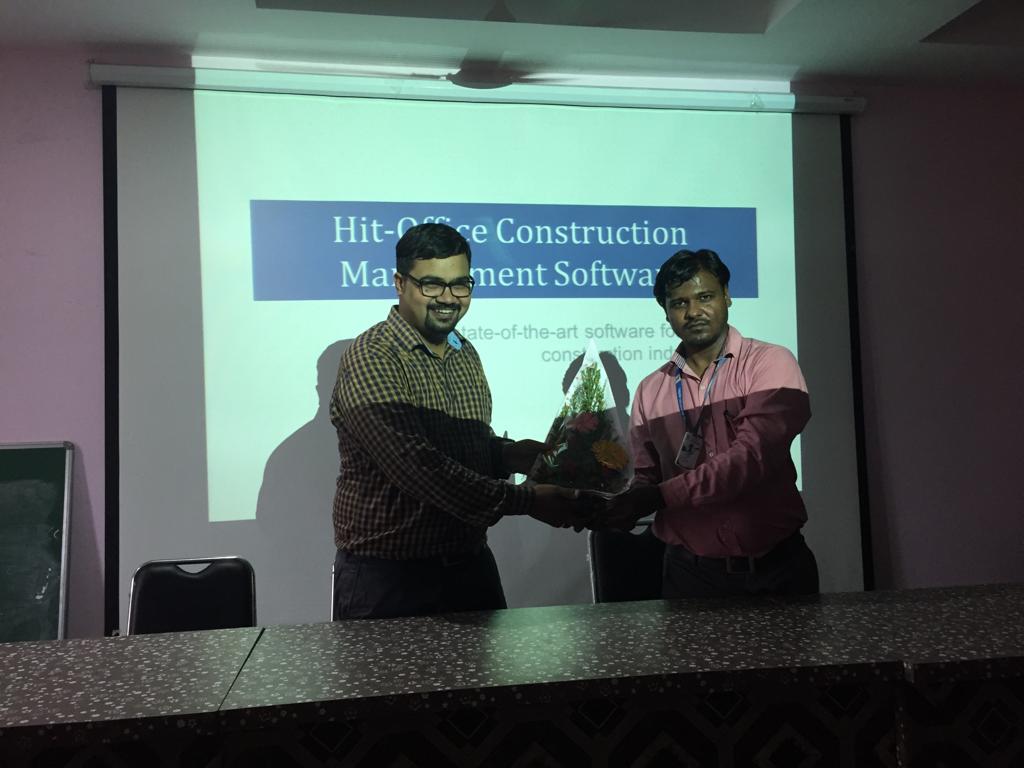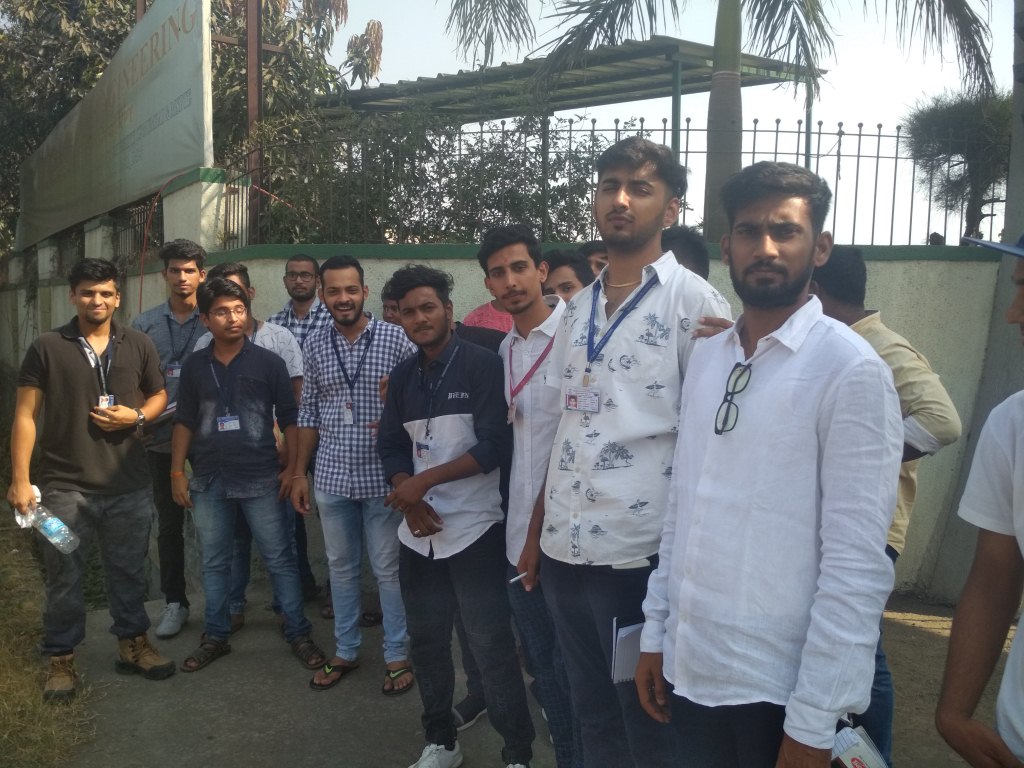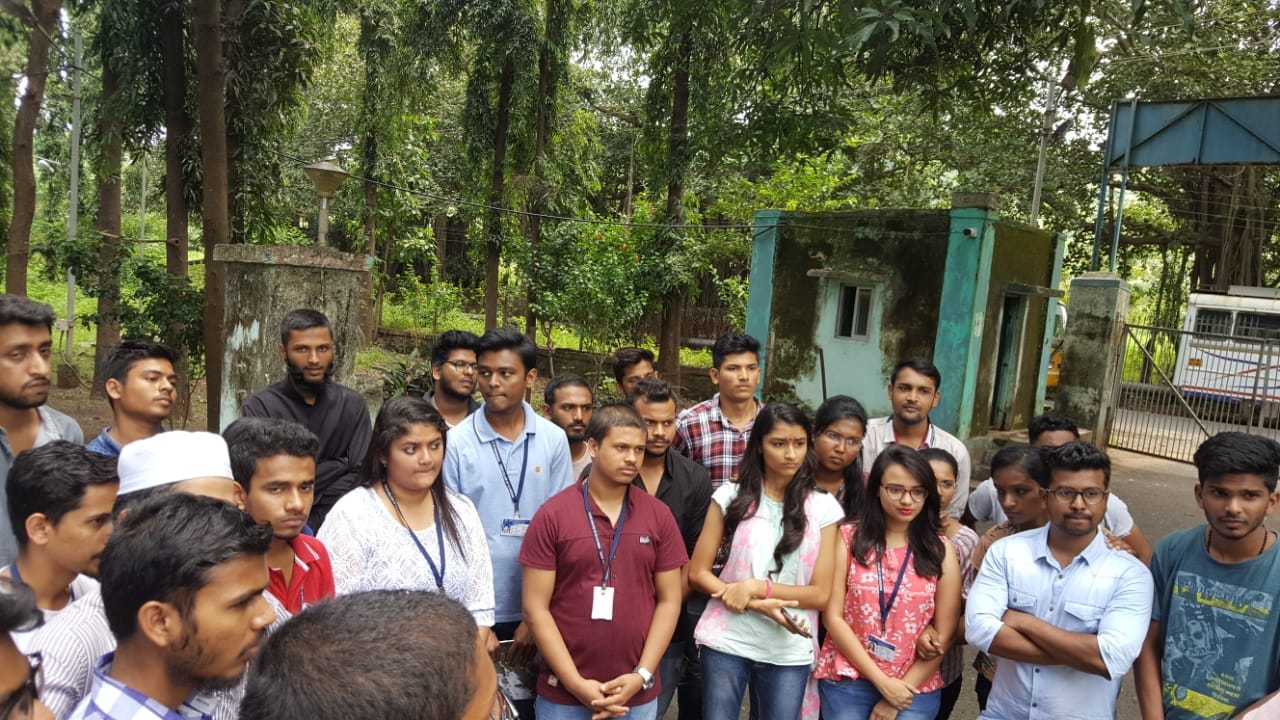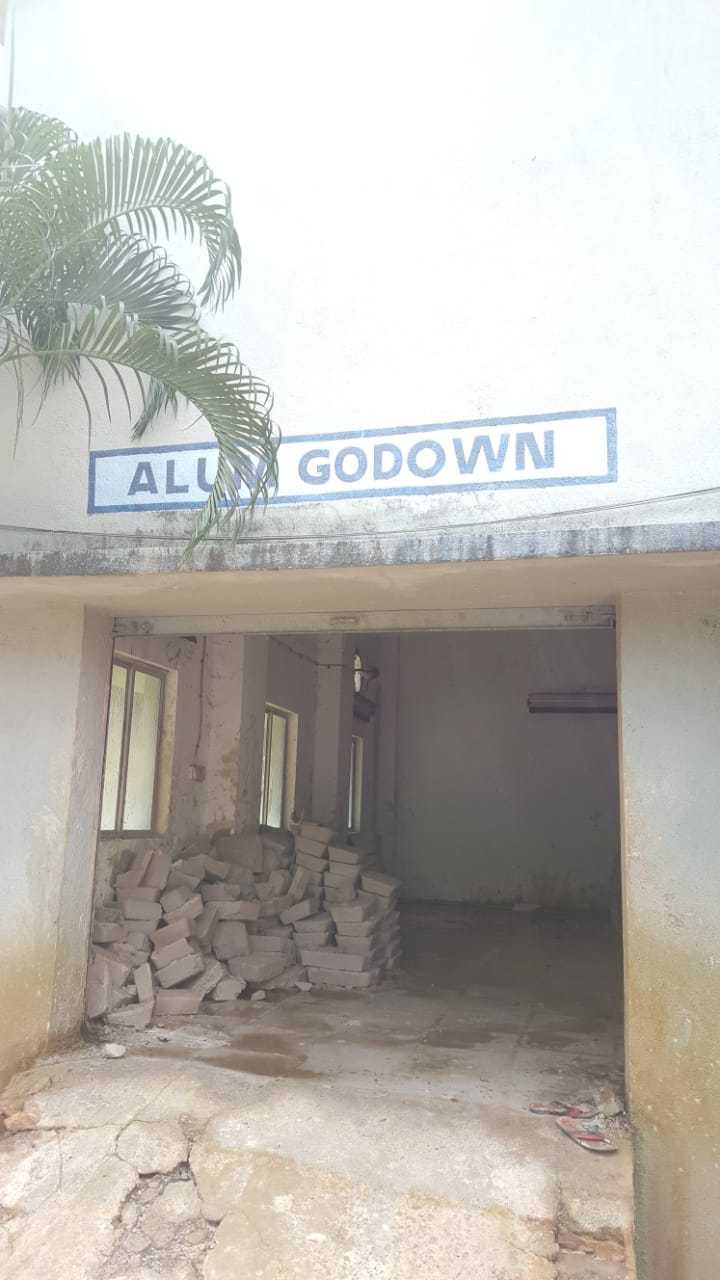| Sem 3 | Applied Mathematics- III | Students will be understand the basic concept of Laplace transform |
Students will be able to apply linear transformation and conformal mapping. |
Students will evaluate contour integral and solve equation using Fourier integral.
|
Students will solve initial and B.V.P using ordinary differential equation and will be able to understand the concept of co-relation regression. |
|
|
|
|
|
Surveying I | Students will understand basic principles, objectives and classifications of surveying and will be able to perform linear measurements by chain surveying along with ranging, offsetting. |
Students will get an idea about different bearings and shall analyse the traverse with corrections by compass surveying. |
Students will get the knowledge of different levelling concepts and will be able to find reduced levels at any point using different levelling instruments. |
Students will plot contour justifying various characteristics and shall plot traverse using plane table and compute area of survey plot and volume of earthwork using different computational methods.
|
Students will handle the theodolite operation and able to find reduced level and angular measurements using different methods and study various corrections.
|
Students will understand tacheomertry methods and able to find linear and angular measurements in both vertical and horizontal direction.
|
|
|
|
Strength Of Material | Student will be able to understand the concept of simple stress, strain and strain energy.
|
Student will calculate the shear force and bending moment for various types of flexural members. |
Student will understand the principle planes, stresses and shear stresses in beam. |
Students will understand the theory of simple bending in flexural members. |
Students have understood with the concept of stresses in axially and eccentrically loaded vertical members. |
Students will understand the thin cylindrical and spherical shell sand torsion in circular shaft. |
|
|
|
Engineering Geology | Student apply the core concepts of Geology with special focus in various Civil Engineering Projects. |
Students can gain the knowledge and application of Tectonic plate theory, seismography & formation of various landforms existing on the Earth?s Surface. |
Students identify various minerals and its classification through the mode of formation, texture etc. And understand their applications in Civil Engineering Projects. |
Students gain knowledge structural geology in order to understand the occurrence of various deformations on the surface of earth such as faults, folds, joints, etc, and the stratigraphy of India. |
Students apply their knowledge with respect to various Geological Investigations and its importance to achieve stability and safety in various structures like dams, tunnels and reservoirs. |
Apply their knowledge with respect to various Geological Investigations and its importance to achieve stability and safety in various structures like dams, tunnels and reservoirs. |
|
|
|
Fluid Mechanics I | Students understand Properties of fluid and basic concepts applicable to fluid mechanics
|
Students will solve problems on Pascal?s law, hydrostatic law and determination of Hydrostatic pressure and Centre of pressure. |
Studnts apply the concepts of buoyancy, Metacenter, metacentric height and liquids in relative equilibrium.
|
Students understand the concepts of ideal fluid flow and fluid kinematics. |
Students understand the concepts of fluid dynamics such as Bernoulli?s theorem and its applications.
|
Students understand visualize the flow through orifices, mouthpieces, notches and weirs.
|
|
|
|
Building Material Construction | Students understand various types of structure and foundation. |
Students study the classification, properties and manufacturing process of basic construction materials. |
Students study the classification, properties and manufacturing process of basic construction materials. |
Students understand types of formwork, flooring and roofs used in construction. |
Students know various materials like glass, timber, metal, alloys & their various types for uses in construction.
|
Students study various building services, air conditioning and ventilation, acoustics and sound insulation, damp-proofing and water proofing techniques in construction. |
|
|
|
| Sem 4 | Applied Mathematics IV | Students use matrix algebra with its specific rules to solve the system of linear equations.
|
Students understand and apply the concept of probability distribution and sampling theory to engineering
problems.
|
Students apply principles of vector differential and integral calculus to the analysis of engineering
problems.
|
Students identify, formulate and solve engineering problems |
|
|
|
|
|
Concrete Technology | Students study the ingredients of the concrete & Properties of cement & aggregate. |
Students study the details of concrete & concreting techniques and to differentiate between properties of fresh and hardened concrete.
|
Students can design concrete mix by I.S. method.
|
Students study about the HPC, admixtures and their application. |
Students study various types of special concrete, its use and application. |
Students perform various NDT on concrete structures and to study crack repair and rehabilitation of concrete structures |
|
|
|
Surveying II
| Students understand the principle, uses and importance of tacheometry. |
Students will learn and analyse various methods tacheometry and their application in practical work. |
Students understand the various types of curves and able to analysis setting out of horizontal curve. |
Students learn analysis of setting out of vertical curves & works with suitable methods. |
Students learn analysis of setting out of vertical curves & works with suitable methods. |
Students will be able to plot contour maps and road section by field measurement. |
|
|
|
Building Design And Drawing- I
| Students will get an idea of load bearing, framed and Composite structure. |
Students understand the concept of footing, types of footing,Doors, windows and stair-case |
Students will be able to plan the building as per the bye laws and sun path diagram and able to execute the plan onto the field. |
Students understand various terminologies of building drawing and local district rules and can draw the plan, elevation, section of the building.
|
Students will be able to plan the bungalow as per the bye laws and principal of planning. |
Students will be able to draw the line diagram of water supply, sanitary and electrical layouts. |
|
|
|
Fluid Mechanics- II | Students get familiar with concepts of major and minor losses due to various pipe fittings. |
Students get familiar with concepts of major and minor losses due to various pipe fittings. |
Students will be able to evaluate pressure drop in pipe flow using hagen-poiseuille?s equation for laminar flow in a pipe.
|
Students do understand the concept of Prandtl?s mixing theory and solve turbulent flow problems. |
Students do distinguish the types of compressible flow based on mach number.
|
Students will be able to analyze and solve problems on stagnation properties.
|
|
|
|
Structural Analysis- I | Students will be able to draw SFD, AFD and BMD of determinate frame with internal hinge.
|
Students will be able to find the slope and deflection of beams using these methods |
Students will be able to find the deflection and slope in portal frames using Energy methods. |
Students get the concept of influence line diagram and can draw influence line for determinate structures. |
Students can analyze the arches, suspension bridges and three hinged stiffness girder |
Students will be able to find the stresses in struts, unsymmetrical section and can find shear centre for various sections.
|
|
|
|
| Sem 5 | Geotechnical Engineering- I | Students understand properties of soil and also able to understand interrelationship between soil properties |
Students will be able to understand and analyse particle size and plasticity characteristic and also able to classify the soil |
Students will learn to calculate phenomenon such as permeability and seepage |
Students will understand principle stress and shear strength developed in soil |
Students will understand phenomenon such as compaction, consolidation of soil |
Students will learn to conduct various methods of investigation and test on soil |
|
|
|
Building Design & Drawing- II | Students learn and understand the planning concepts, rules, regulations, various types of authorities for public building. |
Students get knowledge and able to draw one point & two point perspective drawings for public buildings. |
Students learn to understand redevelopment concept and residential planning |
Students get familiar with objective and principles of town planning. |
Students get knowledge of architecture & modular planning by using computer in building planning & Design. |
Students able to understand green building concept and its certification method. |
|
|
|
Applied Hydraulics- I | Students able to understood the momentum principle, moment of momentum equation and applications of hydraulic machines
|
Students able to understand the significance of dimensionless numbers, concept of dimensional homogeneity and different types of model laws and their applications |
Students able to determine force exerted on stationary flat plates which held normal and vertical to jet and also for curved plate. |
Students able to understand about the general layout, working procedure of hydro electric plates and calculations of efficiencies for different turbines |
Students will be able to understand the working procedure of centrifugal pumps, series parallel operations involved and reciprocating pumps |
Students gets the knowledge of applications of different types hydraulics machines like hydraulic rams, hydraulic accumulator, press, hydraulic intensifiers and hydraulic lifts |
|
|
|
Structural Analysis- II | Students identify stable, unstable, determinate and indeterminate structures. |
Students will be able to determine the deflection of determinate structures due to temperatures effect & settlement. |
Students will analyse the indeterminate structures by force methods. |
Students can analyse the indeterminate structures by displacement methods. |
Students get the idea about plastic analysis and will be able to determine shape factor, plastic moment carrying capacity and collapse load. |
|
|
|
|
Transportation Engineering- I | Students will be able to understand the elements of Air Transportation such as terminal building, parking facilities, apron, hangars, markings and lightings, airport drainage, ATC etc. |
Students able to design the airport elements such as runway orientation, length, gate and taxiway. |
Students able to understand elements of water transportation like harbours, ports and breakwater including study of facilities and equipment?s used. |
Students will be able to decide the Cross Section of the Permanent way and suggest suitable ballast, sleepers, rail and their fixtures and fasteners. |
Students will be able to understand and design the geometric elements of Railway Line such as Gradient, Curves, Super Elevation, Turnouts etc. |
Students will be able to understand working of yards, signalling systems, maintenance of railway track and its construction and modernization |
|
|
|
| Sem 6 | Geotechnical Engineering - II | Students understand concept of stability of slope and study various method of evaluating stability of slope.
|
Students will be able to understand lateral earth pressure theories and method to calculate active and passive earth pressure also able to check stability of retaining structure |
Students will be able to calculate bearing capacity to design various footing such as square, rectangle etc. |
Students will be able to understand necessity of pile foundation and also able to design and calculate load on pile. |
Students able to understand concept of underground conduit and estimation of strut load in braced cut. |
Students will understand application of reinforced soil. |
|
|
|
Environmental Engineering- I | Students will understand the importance of sanitation. They will also learn to estimate water demand using population forecasting methods. |
Students will learn to give layout of distribution system which is suitable for particular location. |
Students get idea about whole water treatment process and will be able to design sedimentation tank and rapid sand filter. |
Students get the idea about different coagulants, disinfectant, iron removal, defluoridation, Reverse osmosis and hardness removing methods. |
Students get the idea about how to manage the solid waste in the society. |
Students will be able to give plumbing layout and improve the sanitation by providing modern plumbing systems with water efficient fixture. |
|
|
|
Applied Hydraulics- II | Students will understand the boundary layer theory and boundary layer separation on the submerged bodies. |
Students will understand the impact of engineering solutions for boundary layer theory in the context of submerged bodies. |
Students will develop the understanding of the flow phenomena and parameters in channel section. |
Students shall design most efficient channel section. |
Students will understand the different slope profiles and its effect on the flow characteristics. |
Students will apply the specific energy concepts on various channel sections. |
Students will apply Kennedy's and Lacey's theory for designing irrigation channels. |
|
|
Design & Drawing Of Steel Structures | Students get the idea of the properties of steel and working stress method & limit state method. |
Students will be able to design of simple connections and bracket connections with bolted & welded. |
Students get the idea about failures of tension member and design of tension member. |
Students get the idea about failures of compression member and design of compression member as strut & column. |
Students will be able to design column bases. |
Students will be able todesign laterally supported and unsupported beam. |
Students will be able to design a truss. |
Students will be able to design a plate girder using IS code. |
|
Theory Of Reinforced And Prestressed Concrete | Students will understand the concept of reinforced concrete & working stress method (WSM). |
Students will analyse & design various types of beams& columns by WSM. |
Students will design slab, footing & shear bonds in structure by WSM. |
Students will understand basic principles, methods, losses & analysis of prestressed concrete. |
StudentslLearn the general design principles of a prestressed concrete member. |
Students will Understand working of yards, signalling systems, maintenance of railway track and its construction and modernization. |
|
|
|
Transportation Engineering- II | Students will be able to understand to Design geometric elements of pavements |
Students will be able to provide suitable design based on available material and its characteristics and apply construction techniques |
Students will be abe to understand the drainage system and their role in preventing failure |
Students will be able to carryout functional and structural evaluation and thereby applying techniques to strengthen the distressed pavement. |
Students will be able to carry out traffic planning and operation of traffic elements and their role in traffic control. |
Students will be able to understand concepts related to Bridge Engineering, its types and components. |
|
|
|
| Sem 7 | Quantity Survey, Estimation & Valuation | Students can read, understand and interpret plans, sections, detailed drawings and specifications for a construction project. To study the various methods of detailed and approximate estimates |
Students will be able to emphasize the importance of relevant IS: 1200- 1964 codes and relevant Indian Standard specifications, taking out quantities from the given requirements of the work, and drafting specifications. |
Students can conduct a material and labour survey to understand the current market rates for the various materials required for construction and the different categories of labour required. To prepare specifications of various types, prepare specifications for various items as a part of tender documents. Understanding the importance and use of specification. |
Students will be able to perform the rate analysis for various items: standard and non-standard and the use of DSR in this process. |
Students will be able to study the process of tendering and its various stages, various types of contracts, its suitability and validity as per the Indian Contract Act of 1872 and draft various clauses and conditions of a contract. Will be able to understand the arbitration process. |
Students can study assessment of the value of a property with or without structure. Study the Valuation table and formulas for assessing different types of properties. |
|
|
|
ENVIRONMENTAL ENGINEERING II | Students will be able to determine quantity of waste water and also design the sewer line for a population of particular city |
Students will analyse waste water sample and suggest a suitable solution to remove the impurities from water. |
Students get the idea about working and design of secondary treatment units and sludge disposal standards. |
Student get the idea about advanced water treatment used for removal of nutrients from waste water and how to calculate oxygen deficit. |
Students will be able to give plumbing layout and improve the sanitation by providing modern plumbing systems with water efficient fixtures. |
Students shall be able to carry out analysis of air quality and understand how it affects human health. They will also learn about pollution controlling measures . |
|
|
|
IRRIGATION ENGINEERING | Students will be able collect data and calculate the demand of water for agricultural land. |
Students will be able to derive hydrographs and predict yield of catchment. |
Students can apply their knowledge on ground water, well hydraulics to estimate safe yield. |
Students willbe able to investigate and control level of sedimentation in reservoir. |
Students will perform stability analysis and design various hydraulic structures. |
Students can analyse and carry out design of water resource distribution system. |
|
|
|
LIMIT STATE METHOD FOR REINFORCED CONCRERE STRUCTURE | Students will develop the clear understanding of the concepts of the design of reinforced concrete structure using ULM and LSM. |
Students will understand the concept of ULM and apply it in analysis and design of beams. |
Students will understand the various clauses of IS: 456-2000 and its significance in the RCC design. |
Students will independently or as a member of the team design structural member like beam, column, slab and footing by using LSM. |
|
|
|
|
|
Traffic Engineering & Control | Students will understand the all the traffic characteristics such as speed, journey time, hydrodynamic analogies, queuing theory and entropy in traffic engineering. |
Students will understand all the traffic surveys such as O&D, Parking, Accident etc. required for effective traffic management system and to correlate the concepts related to highway capacity. |
Students will understand, plan and design all the important elements on the roads like signal, rotary, traffic management systems and street lighting. |
Students will apply statistical analysis in traffic engineering |
|
|
|
|
|
SOLID WASTE MANAGEMENT | Students will understand the all the traffic characteristics such as speed, journey time, hydrodynamic analogies, queuing theory and entropy in traffic engineering. |
Students will understand all the traffic surveys such as O&D, Parking, Accident etc. required for effective traffic management system and to correlate the concepts related to highway capacity. |
Students will understand, plan and design all the important elements on the roads like signal, rotary, traffic management systems and street lighting. |
Students will apply statistical analysis in traffic engineering |
|
|
|
|
|
Adavace Structural Analysis | Students will understand the all the traffic characteristics such as speed, journey time, hydrodynamic analogies, queuing theory and entropy in traffic engineering. |
Students will understand all the traffic surveys such as O&D, Parking, Accident etc. required for effective traffic management system and to correlate the concepts related to highway capacity. |
Students will understand, plan and design all the important elements on the roads like signal, rotary, traffic management systems and street lighting. |
Students will apply statistical analysis in traffic engineering |
|
|
|
|
|
| Sem 8 | Design And Drawing Of Reinforced Concrete Structures | Students will understand the complete analysis and design of residential and industrial buildings using relevant IS codes. |
Students will understand the complete analysis and design of different types of retaining walls. |
Students will understand the complete analysis and design of different types of water tanks using relevant IS codes by working stress method. |
Students be well versed with concepts of civil engineering techniques and ability to use it in practice |
|
|
|
|
|
Construction Engineering | Students will understand the different types of standard/special equipment used in the construction industry and learn the different sources of equipment, economic life and depreciation cost of equipment. |
Students will be able to determine owning and operating costs, evaluate maintenance and repair costs. |
Students will understand the various equipment related to earth moving, drilling and blasting, pile driving, pumping, stone crushing, air compressors, equipment for moving materials etc. |
Students will understand the complex processes involved in the construction of tunnels. |
Students will understand various soil stabilization techniques such as sand drains and stone columns, use of geotextiles and chemicals, diaphragm wall, rock anchors, foundation grouting, etc. |
Students will Understand the concept of mass concreting, vacuum concreting and modern slip forms and to understand different types of cladding and their arrangements. |
|
|
|
Construction Management | Students will be able to understand and apply Management principles, its significance to Construction Management and managing resources. They can also plan, schedule, execute and control projects effectively using resources. |
Students will know the unique features, life cycle of project. Understanding the roles and responsibilities of the agencies involved. It gives an idea about organizing and mobilizing resources, design an effective layout etc. |
Students will be able to demonstrate capability for preparing project networks and work out best possible project duration. Students shall be able to draw bar charts, for different stages of Planning. Analyse Network to find Critical Path. Use PERT method for particular projects, deducing time estimates and finding slack. Finding, the probability of project completion time using statistical tools. |
Students will be able to implement Materials Management, the methods used for inventory control. They get an idea of Manpower planning, selection & recruitment, training, performance evaluation. Understand basics of Finance management, sources of funds, their pros & cons based on project economic appraisal. Students learn the method of Resource levelling and Resource smoothening. Students get a basic introduction to Project management software. |
Students will understand various records to be maintained, writing progress reports and updating the network at regular intervals. Students are able to achieve Time Cost optimization using compression, decompression techniques. Understanding reasons for Time Over run and Cost overrun and corrective measures in such situation. Student understands the importance of Quality, checks to be performed, prepare Quality manual, use statistical quality control. Understanding IS 14000. |
Implement the safety as well as quality aspects during the execution of civil engineering project. Students shall be able to identify causes of accidents, workout cost of accidents, identifying Occupational hazards. Health & safety campaign Understanding various legislation, their objectives, applicability and eligibility in projects. |
|
|
|
Transportation Planning And Economics | Students will be able to understand and apply Land use transport models for transportation planning. They will also be able to understand travel forecasting principles and techniques in planning. |
Students get to understand the various cost and benefit related to transport project. And they will also be able to compare feasibility of projects using net present value and rate of return from projects. |
Students will be able to compare characteristics and application of various mass rapid transit system used in urban transportation |
|
|
|
|
|
|
Industrial Waste Treatment | Students will be able to understand and apply Land use transport models for transportation planning. They will also be able to understand travel forecasting principles and techniques in planning. |
Students get to understand the various cost and benefit related to transport project. And they will also be able to compare feasibility of projects using net present value and rate of return from projects. |
Students will be able to compare characteristics and application of various mass rapid transit system used in urban transportation |
|
|
|
|
|
|
